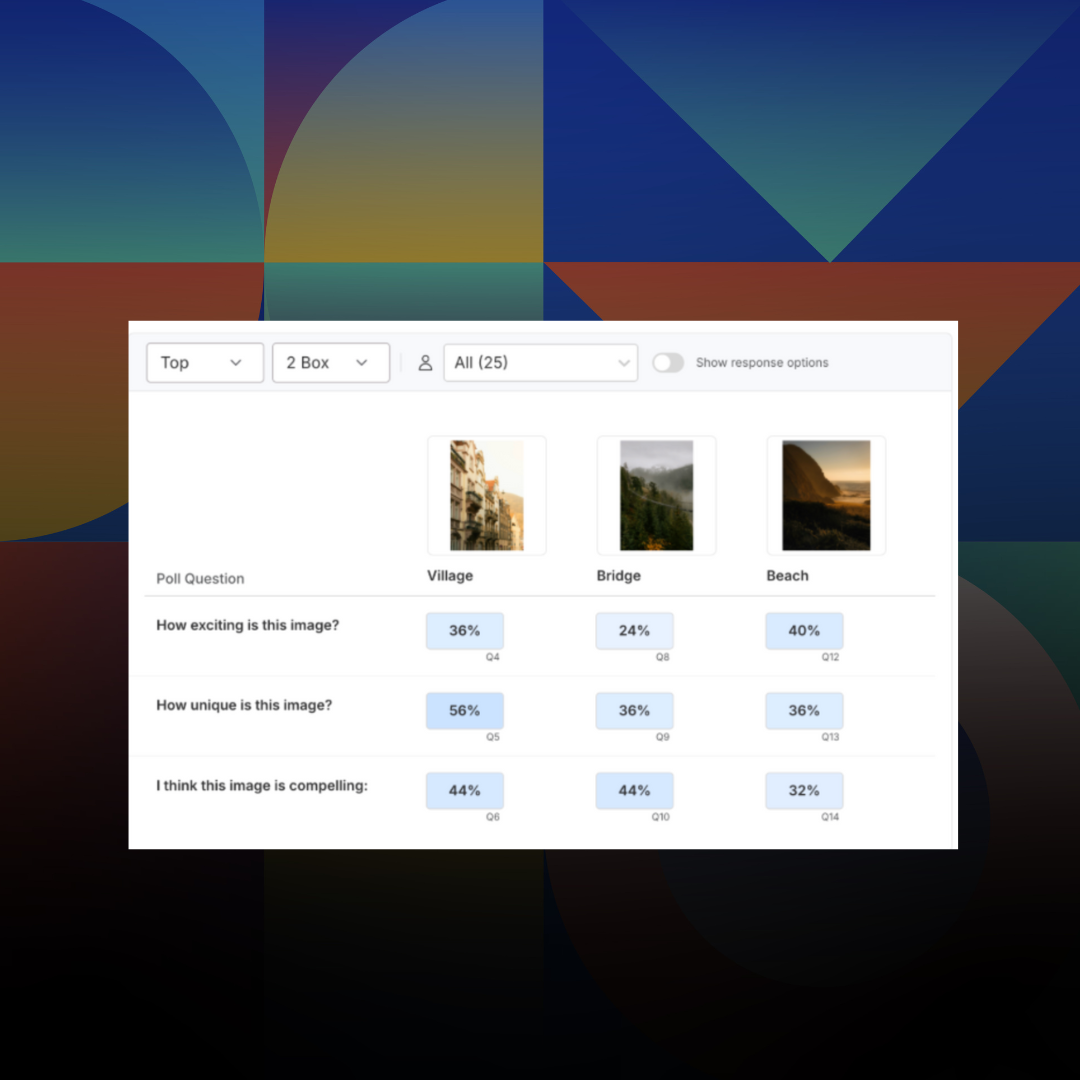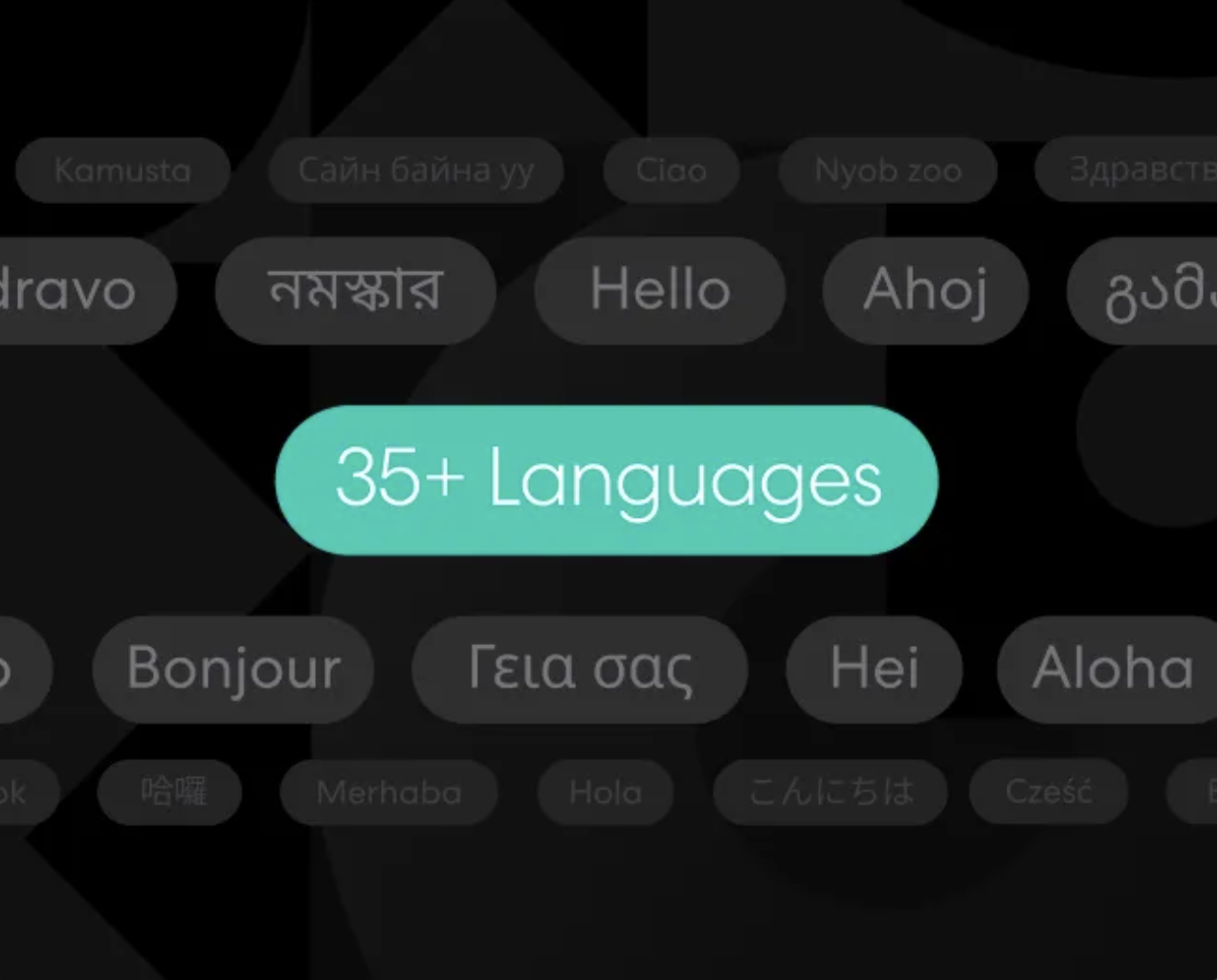
Advanced Research
3 Early-Stage Research Methods to Gather Consumer Insights
Team Remesh
January 27, 2026
Market Research
Articles

Advanced Research
3 Early-Stage Research Methods to Gather Consumer Insights
Team Remesh
January 27, 2026
Market Research
Articles
.avif)
Advanced Research
Why Agencies Should Embrace AI Tools for Market Research
Team Remesh
January 26, 2026
Articles
.avif)
Advanced Research
Why Agencies Should Embrace AI Tools for Market Research
Team Remesh
January 26, 2026
Articles

Advanced Research
The Top Market Research Companies for the CPG Industry
Team Remesh
January 20, 2026
Market Research
Articles

Advanced Research
The Top Market Research Companies for the CPG Industry
Team Remesh
January 20, 2026
Market Research
Articles

Advanced Research
The Most Cutting-Edge Consumer Insights Software of 2026
Team Remesh
January 5, 2026
Market Research
Articles

Advanced Research
The Most Cutting-Edge Consumer Insights Software of 2026
Team Remesh
January 5, 2026
Market Research
Articles

Research 101
Introducing: Poll Comparison - Streamline Concept Testing and Make Better Decisions Faster
Emmet Hennessy
November 24, 2025
Market Research
Articles

Research 101
Introducing: Poll Comparison - Streamline Concept Testing and Make Better Decisions Faster
Emmet Hennessy
November 24, 2025
Market Research
Articles

AI
Purpose-Built for Research AI is Here - a Letter from the CPO
Jessica Dubin
October 21, 2025
Market Research
Articles

AI
Purpose-Built for Research AI is Here - a Letter from the CPO
Jessica Dubin
October 21, 2025
Market Research
Articles

Advanced Research
Unlock Agile Global Insights: Using Remesh Multi-Language Conversations for Research Across Audiences
Customer Success Team
October 14, 2025
Market Research
Articles

Advanced Research
Unlock Agile Global Insights: Using Remesh Multi-Language Conversations for Research Across Audiences
Customer Success Team
October 14, 2025
Market Research
Articles
Key Findings From The 2016 Presidential Election
During the quantitative and qualitative survey about presidential candidates, the moderator asked probing questions surrounding likability of each candidate, as well as their reactions to questions asked during the debates.



Recently, PSB Research used Remesh to record the opinions of 275 respondents, representative of the broader electorate, about their feeling towards presidential candidates.
During the forty-minute session, the moderator asked probing questions surrounding like-ability of each candidate, as well as their reactions to questions asked during the debates.
Some of the findings from that conversation are below.

Overall Results From The Conversation
Nearly all participants responded that they liked “Nothing” about either candidate, including nearly all of the independents.
The graphic below shows 5 personality traits that voters typically rely upon to make their decisions and what qualities were driving those traits for each candidate:

What can we draw from these results?
Clearly, there is a hyper-partisan environment. Of our participants, 30 percent were for Trump, 30 percent for Hillary, the remaining undecided or swing.
A constant source of debate throughout this election cycle has been “Where will the middle fall?” When constituents vote, we will find out!

Key Findings
In addition to these findings, two other key points stood out.

Trump’s Undercover Voters
Trump’s campaign manager Kellyanne Conway urges America to understand the magnitude of what the campaign team calls the “Undercover Trump Voter,” or the “silent majority.” Conway explains:
“Donald Trump performs consistently better in online polling where a human being is not talking to another human being about what he or she may do in the election. It is because it has become socially desirable, if you are a college educated person in the United States of America, to say that you are against Donald Trump.”
In live polls or surveys, which involve a person to person interaction, Hillary has a significantly wider margin than in anonymous polls. One may reasonably infer that people are just more embarrassed to admit to a person that they want to vote for Trump. Trump has begun to call himself “Mr. Brexit” in reference to the phenomenon across the pond, where polls suggested Britain would vote to stay in the European Union despite the unexpected outcome.

The Bradley Effect
The 1982 California gubernatorial elections produced what is commonly referred to as “The Bradley Effect,” less commonly, the Wilder Effect. The theory explains why sometimes voter opinion polls don’t accurately predict elections. In the example from which the theory gained its fame, Tom Bradley was poised to become the first African-American governor of California, or so the polls indicated. His loss led many pollsters and political researchers to theorize that perhaps many voters declared their support for Bradley in polls out of fear of accusations of racism. Driven by sexism instead of racism, will this happen again 2016?

Takeaways From The Conversation
This study revealed participants across the political spectrum are overwhelmingly unsatisfied with both candidates. Tomorrow we hear what the majority really has to say.
Thanks to Penn Schoen Berland and P2Sample for their help with this study. For questions, please contact hello@remesh.org or request a demo!
-
Lorem ipsum dolor sit amet, consectetur adipiscing elit. Suspendisse varius enim in eros elementum tristique. Duis cursus, mi quis viverra ornare, eros dolor interdum nulla, ut commodo diam libero vitae erat. Aenean faucibus nibh et justo cursus id rutrum lorem imperdiet. Nunc ut sem vitae risus tristique posuere.
-
Lorem ipsum dolor sit amet, consectetur adipiscing elit. Suspendisse varius enim in eros elementum tristique. Duis cursus, mi quis viverra ornare, eros dolor interdum nulla, ut commodo diam libero vitae erat. Aenean faucibus nibh et justo cursus id rutrum lorem imperdiet. Nunc ut sem vitae risus tristique posuere.
-
More



Stay up-to date.
Stay ahead of the curve. Get it all. Or get what suits you. Our 101 material is great if you’re used to working with an agency. Are you a seasoned pro? Sign up to receive just our advanced materials.

.png)

.png)

.png)
.png)






